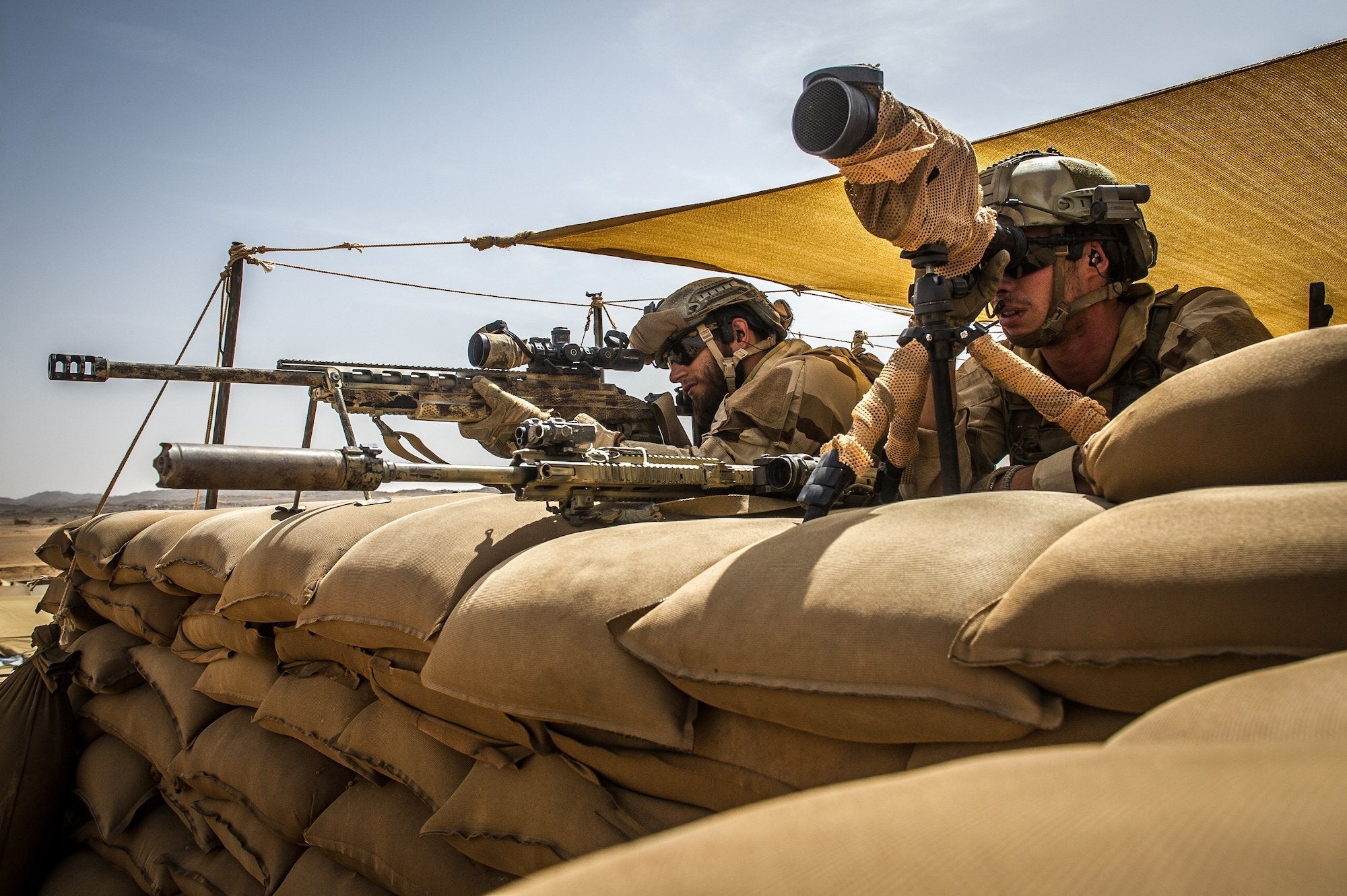
Last French troops leave Niger as military cooperation officially ends
PHOTO CAPTION: Representational photo — A French sniper team is seen in Mali, March 28, 2020. (French Army photo via Wikimedia Commons)
NIAMEY (Reuters) - The last French troops deployed in Niger to help fight a decade-old Islamist insurgency in the Sahel left the country on Friday, sealing a withdrawal that has dealt a further blow to France's influence in West Africa.
Army officers who seized power in Niger in July made France's military exit one of their key demands, echoing juntas in neighbouring Burkina Faso and Mali who severed long-standing security ties with France after coups in 2020-2022.
After initially pushing back, France's President Emmanuel Macron said in September that 1,500 troops would pull out of Niger by the end of the year.
The decision followed a full withdrawal from Mali completed in August 2022 and the end of military cooperation with Burkina Faso in February even as those countries faced worsening attacks from Islamist insurgents.
Until the coup, Niger had remained a key security partner of France and the United States, which used it as a base to help in the regional fight with groups linked to Al Qaeda and Islamic State that have killed thousands and displaced millions across the Sahel and beyond.
A document marking the official end of France's military engagement with Niger was signed by both parties in the capital Niamey on Friday, according to a Reuters reporter.
A last group of French soldiers in fatigues and backpacks then boarded a military plane that took off shortly after.
Relations between Niger and its former coloniser France soured soon after the July coup, when several protests broke out around the French military base in Niger. The French embassy was also attacked in the aftermath.
Following the strategy of the Malian and Burkinabe juntas, Niger's self-appointed military leaders also ordered police to expel France's ambassador.
Diplomatic sources said this week that France had decided to close its embassy in Niamey as it was unable to carry out diplomatic tasks due to restrictions imposed by the junta.
(Reporting by Boureima Balima; Writing by Sofia Christensen; Editing by Mark Potter)









